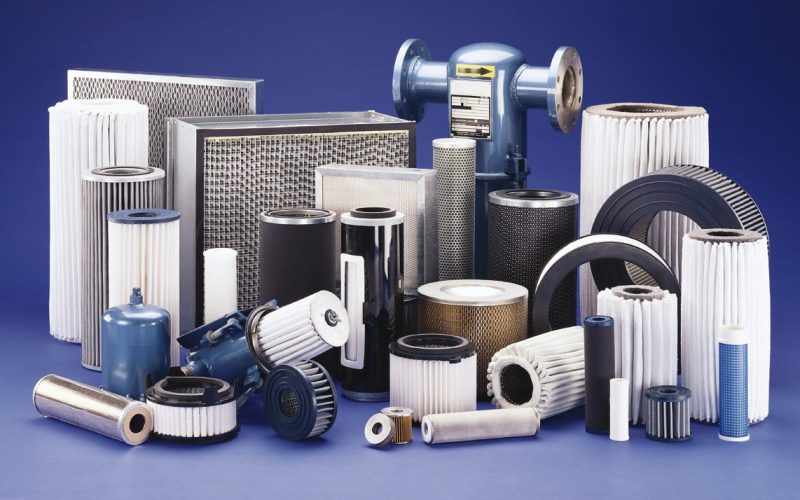Introduction
Hydraulic filters keep your hydraulic systems running smoothly, reliably, and for a long time. Ever wonder why a machine goes kaput too soon? Usually, it’s dirt – tiny metal bits, water, or nasty oil. In this article, I’ll walk you through hydraulic filters, the different kinds, and what they’re best at. We’ll also chat about felt bag filters and how felt stuff fits into today’s filter game.
What Are Hydraulic Filters?
Hydraulic filters are devices used to clean hydraulic fluids by removing contaminants that can damage equipment or cause system failures. They are typically installed in hydraulic circuits, where they filter out unwanted particles from the fluid before it reaches critical components, such as pumps, valves, and cylinders.
By keeping hydraulic fluid free from debris, hydraulic filters help ensure the longevity and reliability of machines and systems. Contaminants such as dirt, metal shavings, and even water can severely affect the performance of hydraulic systems, leading to increased wear, maintenance costs, and unplanned downtime.
How They Work
At the simplest level, a cutting oil filtration system moves fluid through a filter, and that filter’s job is to trap unwanted particles. Imagine pouring coffee through a paper filter — the liquid passes through, but the grounds stay behind. That’s exactly what’s happening here, just on an industrial scale.
What kind of junk are we talking about?
Think bits of metal, dust, varnish, and water. If you don’t deal with this stuff, it’ll wear things down, clog stuff up, and shut down your stuff.
Types of Filters

- Suction Filters: These protect the pumps by cleaning fluid as it gets sucked from the reservoir. They can’t handle a ton of pressure, but they’re the first defense.
- Pressure (Line) Filters: These go before the important parts and really clean the fluid under high pressure. Key for systems that need to be spot-on.
- Return-Line Filters: They clean the oil before it heads back to the reservoir. Good for grabbing particles made while things are running.
- Offline (Kidney) Filters: These filters circle the oil and clean it outside of the flow path, constantly cutting down on particles and water.
- Special types: Magnetic & Breathable Filters: Magnetic ones snag metal bits, and breather filters stop airborne crud from entering reservoirs.
Filter Stuff
1. Paper, wire mesh, and special metal materials
What the filter is made of impacts how well it works and how long it lasts. Paper’s common for cleaning really well, mesh for bigger stuff, and those metal materials for super hot or harsh places.
2. Felt bags filters and felt-based cartridges
felt bags filter a lot of dirt and filter gently, deep inside the material – great when there’s tons of gunk. Some setups use felt bags for big-time cleaning in reservoirs or coolant systems; they’re cheap and easy to switch out, so good for super dirty stuff.
Where You Usually Find Them
- Manufacturing: Things like CNC machines and hydraulic presses need clean oil to keep going.
- Mobile stuff (construction, farming): Tough filters on the suction and return lines are great. Plus, magnets to catch metal, working outside.
- Power plants and boats: Filters need to hold up against heavy flow and salty environments; can’t fail.
1. Picking the Right One
- Micron size, flow, and cleanliness levels: Pick the size that matches what you’re protecting. Check the flow to not starve the system. Shoot for cleanliness based on recommendations.
- Cheap vs. Long Life: Cheaper might need to be switched out. Keep maintenance, and labor when picking.
2. Taking Care of Them
- Watch them, switch them out: Use indicators, send the oil to cleanliness testing, and switch out filters before the system bypasses. Quick checks minimize surprises.
3. Problems
- Pressure, bypassing, and gunk: If the pressure goes up, it might be clogged. Follow change times, and find gunk.
Conclusion
Filters really are the unsung heroes of any fluid system, whether it’s hydraulic setups, coolant loops, or cutting oil filtration systems. They quietly protect your equipment by keeping out the tiny troublemakers — metal chips, dust, varnish, and even water — that would otherwise wear things down or bring production to a halt. Choosing the right filter, whether that’s a depth-style element or something like a teflon cartridge filter, makes all the difference in efficiency and reliability.
The key takeaway? Don’t just install a filter and forget it. Keep an eye on performance, replace or clean elements on schedule, and log the small details. A few minutes of preventive care saves you hours of downtime and big repair bills. Treat your filters well, and they’ll return the favor with long-lasting, smooth-running systems.
FAQs
Q1: When do I switch them?
A: Depends on the crud in there, but watch the pressure and look at the oil; switch before the bypass.
Q2: Are magnetic filters enough?
A: Nope — they only grab metal. You still need to catch other stuff.
Q3: Can felt filters work with hydraulic oil?
A: Yep — good for big stuff and tons of dirt, but pick the sizes made for oily stuff.
Q4: What’s surface vs. depth?
A: Surface catches stuff on top; depth catches it inside, holding more.
Q5: Is it worth it to clean offline?
A: Usually, yes — it cleans without stopping, so things last longer and you don’t have to fix them as much.












